Today is the United Nations Word Bee Day, and as such we decided to take a closer look at the challenges the honey industry in Malta is currently facing.
In recent years the growing trend of ‘fake’ honeys has escalated in Malta, with the Jubilee Foods case even ending up in a courtroom. Now, after years of calls from beekeepers and NGOs to regulate the honey market, the Ministry of Agriculture, Fisheries and Animal Welfare has submitted the final draft of honey quality standards.
Misleading packaging can be found readily. To the unknowing eye, jars of honey even bear the Maltese Cross, names and imagery, and it is only when the jar is turned upside-down and you can read – in small print – ‘produced with a blend of EU honeys.
Higher standards and quality control have been promised for years. Rodney Galea of the Malta Beekeepers Association says: “The call to push for quality standards are more urgent now than ever before.” He gave assurances that the association is not taking the situation lightly and sanctions are now being implemented on any Malta registered bee keeper found to be using poor quality foreign honey or making misleading claims.
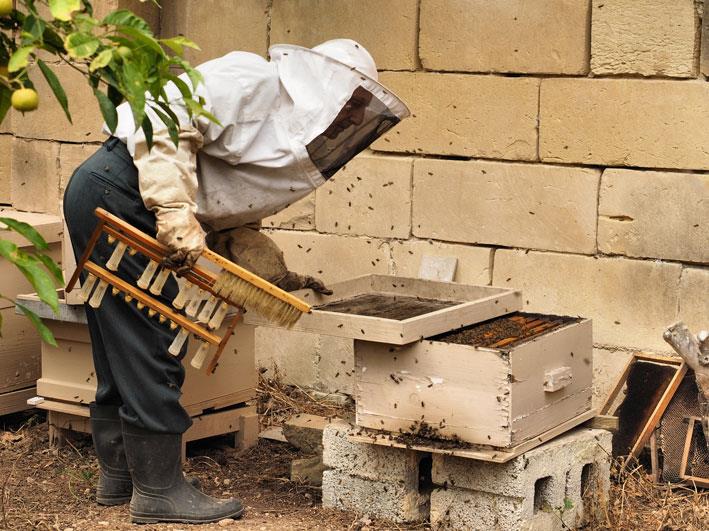
Local veteran beekeeper Michael Muscat adds: “Many Maltese are aware that, if they want genuine honey, they have to go direct to a beekeeper” and noted that many tourists fall for the fake honeys. Mr Muscat is a third-generation beekeeper and has seen great changes in the field over the last 40 years. He kindly invited us to one of his apiaries to show the hard work, dedication and labour of love that is involved in making pure Maltese honey.
He is also a contributor to an international bee conservation project called ‘Smart Bees’. The main aim of this project is to revive indigenous European sub-species of bees, including the Maltese bee. Muscat explained that, in Malta, there are typically three honey harvests a year, but in recent years yields have been poor.
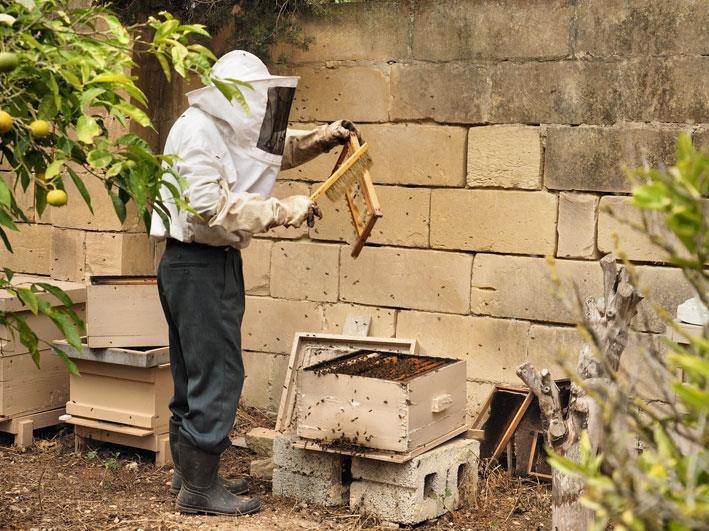
Spring honey: This is typically a yellowish colour with a liquid consistency It is a multi-floral honey, typically but not solely, originating from nectar collected from red clover (hedysarum coronarium), boar thistle (galactites tomentosa), citrus trees (citrus spp) and borage (borage officinalis). This type of honey, which is the lightest, is harvested between May and June and has a tendency to solidify within a few months.
Summer honey: yellowish-amber in colour, with a viscous consistency, this originates mainly from nectar collected from Mediterranean thyme (Thymbra capitate). This honey is harvested typically in July and/or August.
Autumn honey: usually dark amber/reddish-brown in colour, this is from nectar collected from eucalyptus (Eucalyptus spp) and carob trees (Ceratonia siliqua). It is harvested between November and December and is the strongest in taste and aroma.
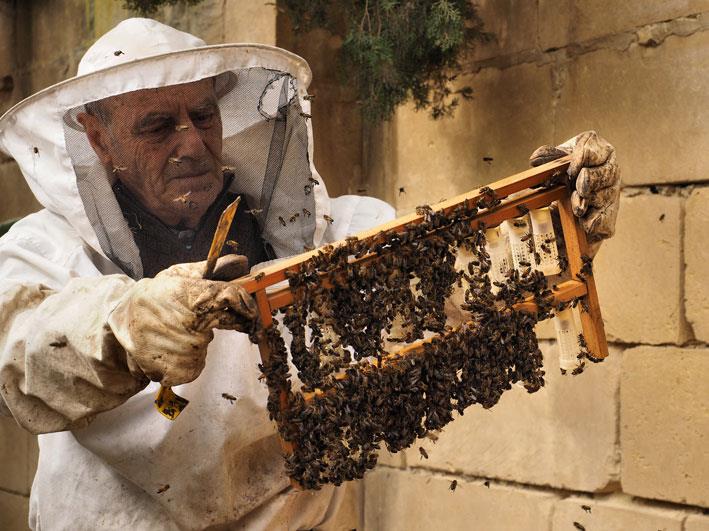
In response to calls from beekeepers, Spokesman for the Parliamentary Secretary for Agriculture, Fisheries and Animal Welfare Sean Schembri said: “A number of weeks ago we launched the ‘Prodott ta’ Kwalita’ or Products of Quality scheme, whereby a number of new standards have been and are still being formulated, including one for Honey.” The public consultation period for the standards closed in April and now the draft plan has been finalised. Schembri added that the Ministry “Aims to see the plan in force within the year.”
He referred to an earlier press release from the Ministry: “Marka ta’ Kwalità is a guarantee to the buyer that the product purchased not only meets European minimum standards, which all Maltese products must meet, but that it also contains certain qualities. Such qualities, for instance, include the way it was grown or reared, treated and packaged or delivered, thus ensuring that it is being delivered in a manner that demonstrates its quality and the dependability of the process behind it.
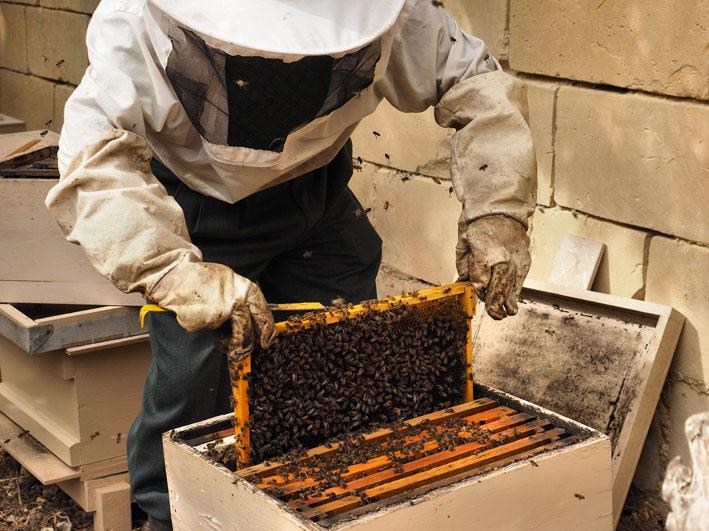
“The properties may be linked to taste, ingredients, appearance, environmental conditions ensured in the process, or the social contribution which a certain brand of product or products make towards the community. The key factor behind the quality policy is to reward producers who make a greater effort with better prices, and to facilitate transparency for the benefit of the consumer.
“The quality is displayed to the consumer through quality brands, but the quality in question is not just a label affixed to a product. ‘Marka ta’ Kwalità’ is a means of protection for genuine products and producers and has to ensure that the product was truly produced in a transparent manner, and that during its production, standards which are higher than those required by law were maintained.”
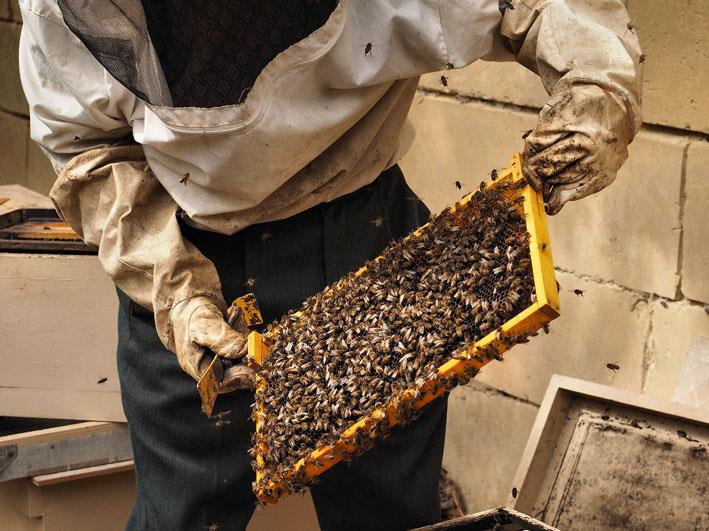
Despite this positive step forward, the bee industry faces huge challenges. In a press release The Beekeeping Association added: “In the past 50 years, a worrying decline in wild and honey bee populations has been noticed. This is due to environmental threats: their habitat is shrinking and the conditions required for their survival and development are steadily worsening. There are fewer and fewer nectar-bearing areas due to increasing monocultures and the urbanisation of green areas. The use of certain pesticides is also making the situation worst. As a result of this, we are witnessing poorer development of bee colonies. In addition, there are also new bee diseases and pests, resulting from the reduced resistance of bee colonies’ and from globalisation, which supports the transmission of pests over long distances.
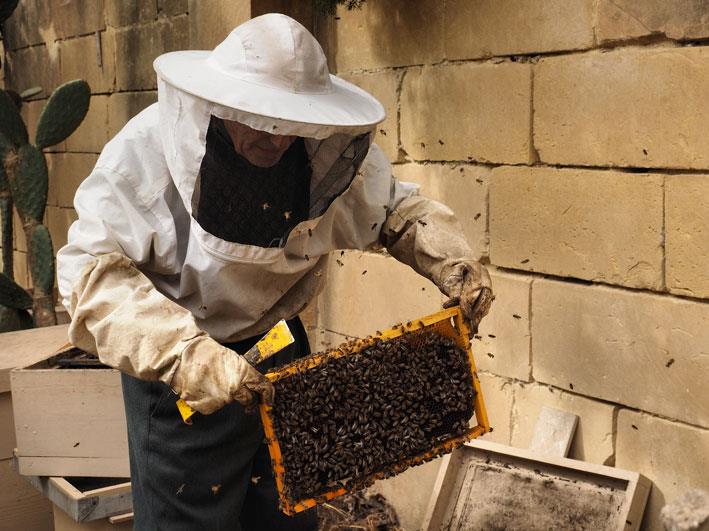
“Apart from this scenario, the endemic honeybee of the Maltese Islands (Apis melifera rutneri) is facing a serious threat of becoming extinct due to the fact that a high amount of foreign bees are being imported. This situation is diluting the genetic purity of the endemic bee and if the authorities fail to act soon to safeguard this bee, which is found nowhere else in the world, we will soon lose it. Malta has already lost several endemic farm crops and farm animals such as the Maltese strawberry, Maltese cotton and the Maltese sheep. We sincerely hope that the Maltese bee will not be next.” These concerns were echoed by Mr Muscat and many of the islands beekeepers.
The Malta Beekeepers Association aims to spread awareness of the challenges faced by Maltese bees and Malta’s beekeepers by celebrating their first World Bee Day at San Anton Gardens today from 9am to 6pm. There will be an information stand showcasing bees and honey products, as well as an exhibition.
Photos Michael Camilleri